Lord Of The Fantasies: Beyond The Swordfights
Should Sauron, the titular villain of The Lord of the Rings (yes, often I forget that the title itself references the dark lord!) have appeared in physical form at the films’ end?
That claim during discussion after last week’s column in this Lord of the Fantasies series surprised me. I had thought it was beyond debate that the dark lord Sauron, who had been “diminished” after the Gondorian warrior Isildur cut the Ring from his hand, could not take physical form — at least, not until the One Ring was back in his possession.
But evidently last week’s readers are not the only ones who think that is open for interpretation. Peter Jackson and the folks who adapted Tolkien’s epic fantasy into the Lord of the Rings films also thought so. They even filmed a physical Sauron appearance.
Some of you may know this already. During my last viewing of the film series’ behind-the-scenes DVD features, though, I was struck by the logic of including Sauron as a physical being, even an “angel of light” visage (known as Annatar). Yet I accepted the far better logic of instead keeping Sauron spiritual and subtle. In fact, the benefit of not making such a change is similar to that of not changing another character’s actions in The Two Towers film (after internet fans raised a ruckus over the potential alteration).
In both cases, story beholders are blessedly turned aside from insular definitions of heroes as people who are stronger and faster in battle, to oft-ignored kinds of heroes.
Example of Arwen Evenstar
Here, I think it’s best to let the filmmakers and actors speak for themselves. (This excerpted transcription, and the following, are from The Lord of the Rings Extended Edition DVDs’ appendices discs, for The Two Towers and The Return of the King.)
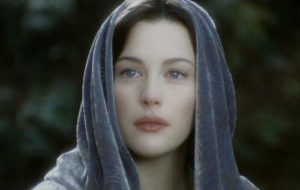 Discussing the processing of adapting The Two Towers book for the screen, director Peter Jackson mentions original plans to include Arwen, Aragorn’s Elven love interest, in the Helm’s Deep battle. That seemed necessary, Jackson said, because otherwise the film would struggle with a storyline of lovers separated by hundreds of miles. But …
Discussing the processing of adapting The Two Towers book for the screen, director Peter Jackson mentions original plans to include Arwen, Aragorn’s Elven love interest, in the Helm’s Deep battle. That seemed necessary, Jackson said, because otherwise the film would struggle with a storyline of lovers separated by hundreds of miles. But …
Barrie Osborne (producer): “Certainly we got a lot of fan reaction to that. There was a rumor on the net that went out immediately that that was the direction the movie was going to go. And —” (Visibly swallows.) “There were a lot of objections to that thought.”
Liv Tyler (actress): “People don’t think that we ever look at this stuff.” (Laughing) “I once made the mistake of going and reading some of the stuff. And I cried so hard afterwards, because they were calling me ‘Liv Tyler, Xena Warrior.’”
[…]
Rick Porras (co-producer): “The way it was written, she actually was this incredibly gifted and courageous and ruthless fighter, like all Elves are capable of being. And as we were shooting Helm’s Deep, a decision was made: look, you know what, actually, this isn’t working; we need to change this.”
Viggo Mortenson (actor): “I think the filmmakers [were] trying to be creative and think of a way of including her more. But I think they found better ways to do that, by mining the appendices of The Lord of the Rings, of which Tolkien himself said the one concerning Arwen and Aragorn was the most important one to him.”
Philippa Boyens (co-writer): “Now that we’ve managed to come back to the book, what we discovered is that the love story could be more unconventional. That you could in fact tell the story as written, with these two main characters being apart from each other, because they were always together.”
Tyler: “So it wasn’t until the second half of shooting when we really started to change everything, and when we came back to who Arwen truly is, that I really just — I mean, I was so into it, and so liberated and happy. I was skipping around the set. At that point, I just went right back into the book and into the appendix. What we came to realize was that you don’t have to put a sword in her hands to make her strong. Where we’ve come to now is all these true elements of who Arwen is. I mean, this is an incredibly powerful and fearless woman, filled with so much hope and belief. And that is strong enough.”
What a thought. Not all strong female characters must fight, or prove they’re equal to male characters in every talent. Instead, strength and valor can be shown by waiting for a warrior’s return, believing in his victory, even being a servant to support him.
Would that other storytellers, non-Christian and Christian, who are drawn into extreme un-Biblical views of women’s role or abilities, understand this about female characters:
“You don’t have to put a sword in her hands to make her strong.”
Example of Aragorn Elessar
The same proves true for the film’s version of Aragorn, who almost was shown in a somewhat familiar Epic Duel, Luke-and-Darth-Vader-style, at the end of The Return of the King. That’s according to the same crew, who later discovered a much better way.
Jackson: “Sauron’s always proven difficult in these films, especially to me. I mean, I’ve always had problems — with my sort of movie-making hat on. I mean, it works fine in the book; no problem with the book. But your villain is basically a giant eyeball. […] We also felt that Aragorn has come this distance with his journey, and that Sauron is his enemy, and that we had to somehow have this personal duel between Aragorn and Sauron. That’s not in the book. But we felt that it had to be in the movie.”
[… Later, they show the actual original script.]
CLOSE ON: SAURON the FAIR looks into ARAGORN’S eyes as if STARING into his very SOUL …
SAURON
What did they bring, the Kings of Old?
From over the sundered seas?
Seven Stars, and seven stones
And one white tree…Hail Aragorn, son of Kings.
[…]
Jackson: “It was not what Tolkien imagined. And we realized it was actually totally demeaning to what Aragorn was doing. The story was so clear as to what was happening, that this was all about Frodo and Sam. Aragorn realizes, if they’re still alive, then he has to do what he can to help Frodo and Sam. So Aragorn’s heroism is not a one-on-one duel with the big villain. His heroism is his attempt to put his own life and the life of his troops on the line, in the vague hope and dream that it somehow may give Frodo and Sam that little opportunity to help them complete their mission.”
[…] “We’ve sort of got the best of both worlds, because we had that moment where he’s drawn away, and just when you think that [Aragorn is] somehow being affected by this force, he turns and he says —”
[Clip of Mortenson as Aragorn, in a greenscreen-surrounded set.]
Mortenson: “For Frodo.” [With a battle cry, he charges away.]
Yet another groundbreaking concept: turning aside from yet another scene of muscular bodies and huge weapons hurling against each other, to show not only inner conflict and defeat of evil with good, but a clear and stunning portrayal of self-sacrifice.
Would that other storytellers, non-Christian and Christian, who are drawn into extreme un-Biblical views of men’s roles or abilities, understand this about male characters:
“Aragorn’s heroism is not a one-on-one duel with the big villain. His heroism is his attempt to put his own life and the life of his troops on the line.”
The appendices
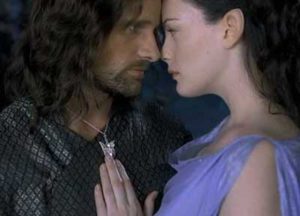 Whatever our thoughts of the films and what they got wrong, we have to give them this: after considering these two possible changes, they saw the light. They both understood why the book and its story was better, and turned from the seduction of making female strength about Girl-Warrior Power, and battles of good and evil mainly about masculine combat. In this, they honored Tolkien and showed respect to his books. And, for those with eyes to see, the films showed Biblical, servant-leader heroisms to the world.
Whatever our thoughts of the films and what they got wrong, we have to give them this: after considering these two possible changes, they saw the light. They both understood why the book and its story was better, and turned from the seduction of making female strength about Girl-Warrior Power, and battles of good and evil mainly about masculine combat. In this, they honored Tolkien and showed respect to his books. And, for those with eyes to see, the films showed Biblical, servant-leader heroisms to the world.
Still, you might still believe Arwen could have been different, or Sauron more physical, while also preserving these themes. If so, how so? What other diverse kinds of heroism did the Lord of the Rings books reflect? How did the films show these, or change them?


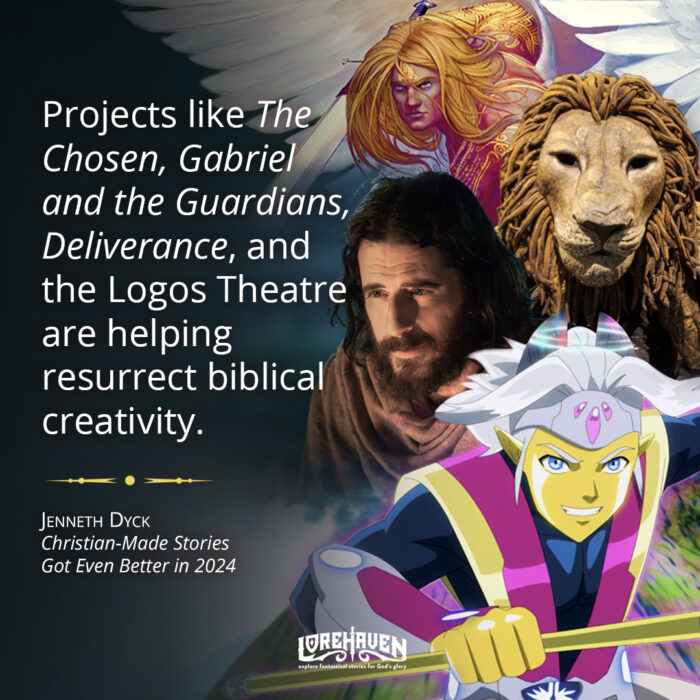





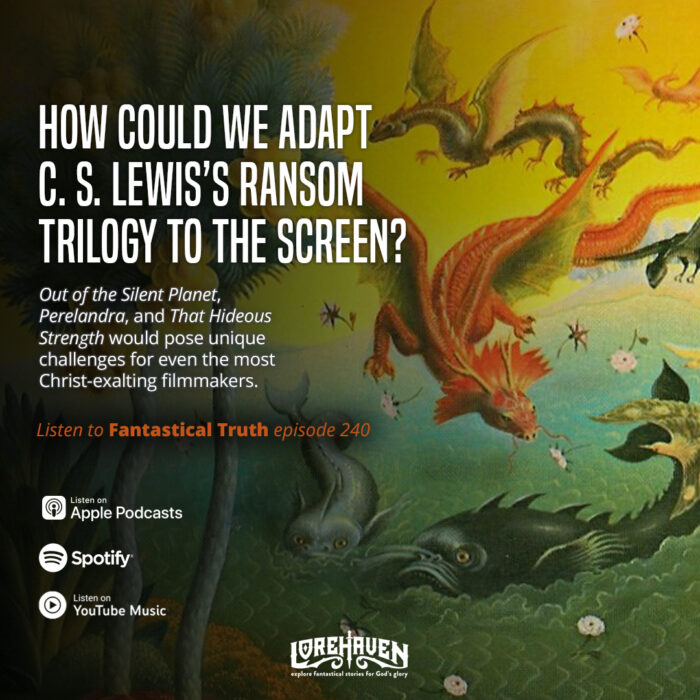











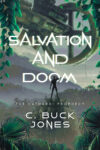

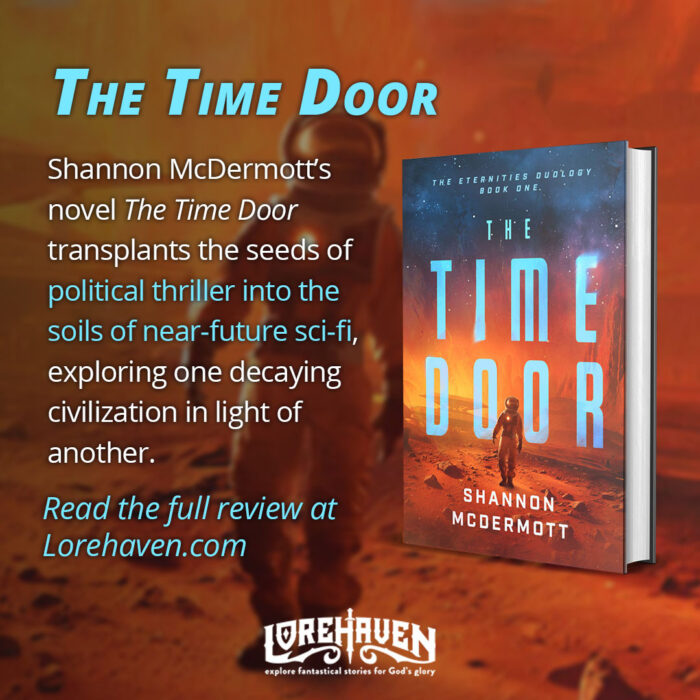
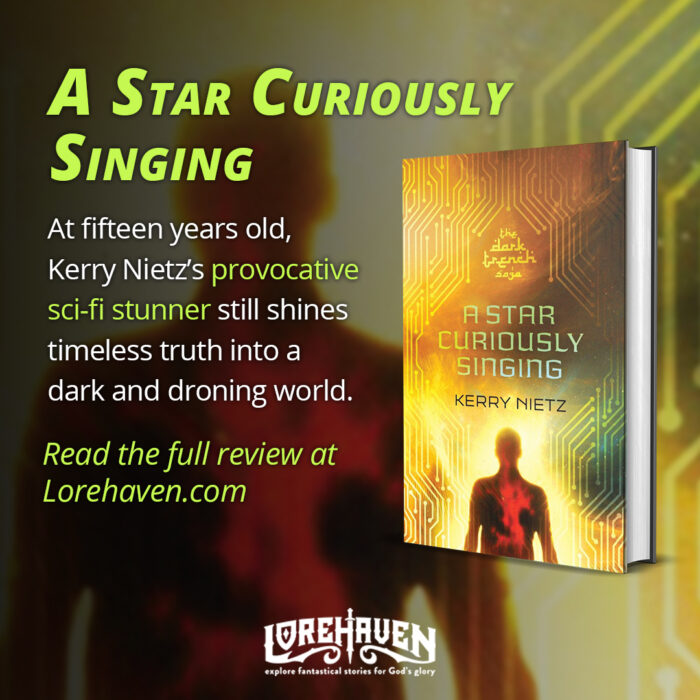
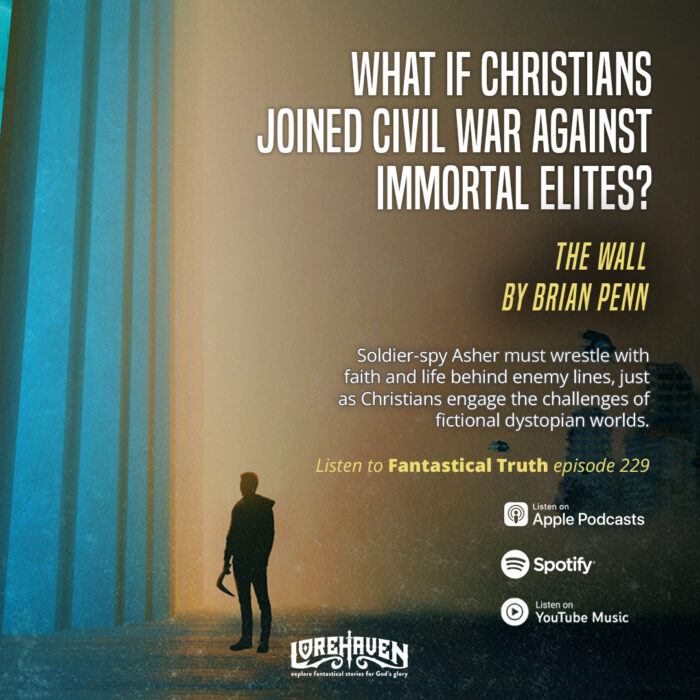
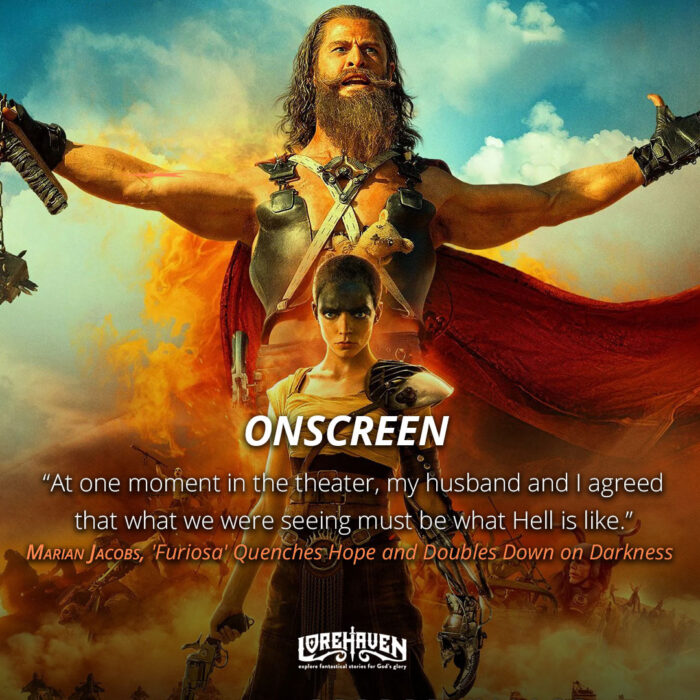


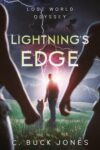






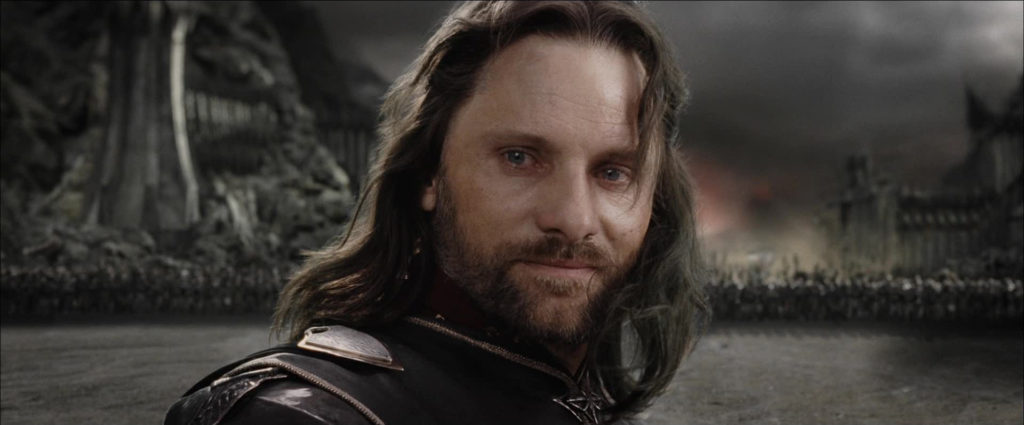
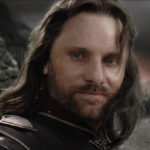
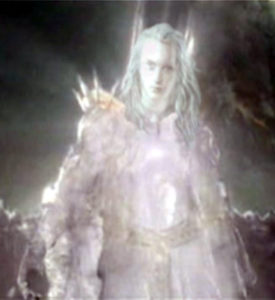



I so appreciate that they removed Arwen from Helm’s Deep! It was just so wrong. When I was younger, I always felt they were taking away from Eowyn’s unique shieldmaiden status by doing that, too – SHE was the fighting woman of The Lord of the Rings, not Arwen, I argued. I used to be a little wannabe shieldmaiden myself. Now, from an older and hopefully more mature perspective, I don’t admire Eowyn’s rebellious need for battle half as much! (And yet, Jackson and the other filmmakers seem determined to show a “kick-butt” elven warrior woman. Have you heard the news about Tauriel in the “Hobbit” movies? Arrgggh.)
The whole warrior-woman thing is an important issue to me as an author. It frustrates me that female characters so often have to be “tough” and “strong” – and by that, it is meant that she must fight as well or better than most of the male fighters. I plan on writing an entire blog series on the topic of REAL “strong female characters”…someday…
Wow, I don’t think I ever knew about the almost-battle between Aragorn and Sauron! Whew. I’m glad they took that out!
I had read that, Bethany, just as I was finishing this column yesterday.
And I thought, Gee, thanks, guys. Right as I’m trying to be nice to you.
One of the pleasures of the Lord of the Rings books, and even reflected in the film versions, is that story-world’s “patriarchal” feel. Mind you, I despise much of what passes for “Biblical” “patriarchy” in modern Christian circles. But a story-world in which men, to some extent, lead through physical and emotional heroism, and in which women also lead similarly, yet in different ways, is very refreshing.
I agree. It is a delight to read about a world where men naturally assume leadership, and women do the world good in their own womanly way, not trying to act like men in order to be useful or valuable.
Wow, I LOVE that Liv Tyler quote. It reminds me of something I came across on TV Tropes’ “Real Women Never Wear Dresses”: “…while most reasonable people see women and men as equals, few (if any) dare to claim that femininity is masculinity’s equal.” But… it IS.
The one analyzing Aragorn’s heroism is nearly as good. And to me… the Ring’s always been the villain, not Sauron.
In my opinion, these things were perfect.
Agreed. And to see what happens if they do that direction [Xenification|], one need look no farther than a film adaptation of another Inkling’s work–the 2008 Prince Caspian. It made me sick to see Susan firing off arrows and knocking people down in the battle of Aslan’s Howe (which SHOULD NOT have happened!). For me, the true hero in the book was Lucy, who followed Aslan even when no one else could see him. Even though she hadn’t earlier, she made the right decision and was rewarded for it.
And even with male heros, strength is not always shown in violence. For all the narm of Doctor Who’s season three finale, there’s a moment that’s amazing:
The Doctor: I forgive you.
And the truly amazing thing about that scene is that the villian doesn’t mock the hero for doing so, but seems equally terrified and relieved at him.
Amen Ma’am, and great DW reference. I actually liked the DW season three finale for being “epic”, but not overdoing like, say, the next year’s finale did.
 HOOAH!!!
HOOAH!!!
Oooh! Another Tvtropes fan.
I’m actually relieved, the eye wasn’t perfect, but was better than what they would have done. The point is that, in the book, Sauron CAN do something, but won’t. He is referenced by Gollum, the Orcs in Mordor, and others, as having been seen by them. He doesn’t take part because he is, ultimately, a coward. Despite being obviously stronger than anyone there BUT Gandalf, who can’t intervene to that extent, he is terrified by Aragorn. He believes that Isuldur’s heir could be the one to possibly do the “impossible” and wrest control of the Ring from him, destroying him.
The part that, for me, does it for convincing me of his physical nature is the combination of the bad guys’ words and thoughts, as well as the good guys believing the same (their plan relied on Sauron being so terrified of Aragorn that he would focus all attention on the “Captains of the West”, combined with the end of the battle. Sauron didn’t have his whole power, but he DID have a physical form, though weakened. After the Ring is destroyed, Sauron appears as this giant, ominous form reaching towards them, and is then, blown away by the winds. At least to me, that suggests that he did have a form which was destroyed at the end.
But that said, the “Eye of Sauron” gimmick is far preferable to turning the film into a ripoff of a Star Wars lightsaber duel. One wonders if they would have asked Howard Shore to invite John Williams to help him score it to be even more obvious.
Oh yes, the “Arwen at Helm’s Deep” idea. Thankfully they dropped it. ‘Course, they also “dropped” most of Galadriel’s character arc to turn her into a generic “action girl”, but that’s another issue….
Honestly, why can’t they drop the modern notions that all women have to fight and kill to be strong? I don’t know. I loved the movies, but they way they dropped Tolkien’s themes and ideas for more modern ideas upset me.
Great piece, Stephen. You should do some more on this topic. There’s so much to discuss!
Arwen’s woman-warrior detracting from Éowyn doing the same, in canon, is another angle I wasn’t able to explore. From a story perspective, having two female-warrior characters — both of whom with feelings for Aragorn — would have been both redundant and silly. (After all, a similar objection was part of the filmmakers’ rationale to making film- Faramir different from Aragorn.)
It remains amazing to me how, with Éowyn, Tolkien was ahead of his time in having a woman not only pose as a man — successfully, for both Merry and un-spoiled readers.
But it’s even more amazing to me how Éowyn, in the books and even in the films, still does not cross too far into the contemporary and cliched anything-you-can-do-I-can-do-better “Xenafication,” as Galadriel said (which did plague the Prince Caspian film).
In the books and films, this is shown in Éowyn’s dedication to her uncle, a father-figure in her life, who is also king of Rohan. Her strength, both emotionally and physically, is realistic and admirable, even as she participates in a king-ruled “patriarchal” society.
One of the most notable examples in the films, even in a non-book scene, is during The Two Towers‘ portrayal of an attack by Orcs and Wargs on the Rohan refugees. Théoden King prepares to lead his troops into the skirmish, and even then, gently rebuffs Éowyn. “You must lead the people to Helm’s Deep,” he tells her, as both king and father-figure. “I want to fight!” she insists. “No! You must do this, for me” Théoden says. And Éowyn, though disliking her chance to fight the way she’d like to fight, follows her king.
Yes, her chance for glory comes later — if indeed the horror of battle, and at seeing her father-figure and king nearly devoured, then actually perished, could be called “glory.” But neither the films nor the books judges her motives or the results. There is no emphasis on either extreme of “girl battle power” or “women should keep their place.”
Good thoughts.
Obviously, because we live in a modern, feminism-soaked society, the movie played up Eowyn’s battle scenes as the high point of her story, her crowning triumph. But in reality, I think that was a low point for her. She had gotten desperate, and in her eagerness to follow her uncle she disobeyed him instead of really following him. I think it was one of those situations where a character’s strength became their weakness as well. (And the flaws make her a stronger character! She’s still one of my favorites.)
I also love Aragorn’s loyalty to Theoden, in both book and movie. Despite being the returning king of Gondor, with every chance to toot his own horn and claim authority, he was loyal to Theoden in his kingship in Rohan, defended him, fought in his name, and respected him – first as his lord, and later as his equal as he took on more authority of his own. One of my favorite things about Aragorn is his outright humility.
I am thankful to say that I don’t remember the “Xenafication” of the Prince Caspian movie…I think I have effectively forgotten most of that film. Haha.
Thanks for this article. It highlights the best part of the movies, which isn’t the movies–it’s the Making Of behind them.

And learning fun things like how Aragorn broke his toes when he kicked that helmet.
Bethany, Ma’am, I agree with you completely. Stephen, I would say that the book DOES make it clear that Eowyn is wrong. NOT for wanting to help fight, but for her attitudes, as Bethany pointed out above. She was too rebellious. Faramir points this out to her, noting that she only truly wanted Aragorn because she wanted “glory” and to be someone “remembered”, not because she loved him.
Moreover, I would argue that she was only doing right from the perspective of Tolkien during the actual battle against the Witch-King. At that point, it became less about her, and more about her beloved uncle, King, and father-figure. When, as Bethany pointed out, it became not about “great deeds” but about service to others, THAT is when Eowyn started to develop and do well as a character.
To make it clear, I think that you are right, Stephen, in that Tolkien did not portray Eowyn as wrong for wanting to fight. Although one should argue that there is a difference between a leader and her subjects, and between total war and protecting those who are physically weaker. Eowyn herself seems to have had no desire to have the women of Rohan fight en masse. But that is an aside. My main point is that it is not her desire to fight, but the desire for glory that makes her character so misguided at the beginning. She is more like Boromir, and less like the Rangers she admires in the form of Aragorn, in this way. The Rangers sought no glory, but did what was right.
Eowyn couldn’t seem to realize that the way to fulfillment was not in fighting vs quiet leading, or any other dynamic, but in serving others. Once she accepts this, finally, she is happier than she has been all during the book. It’s not her accepting a “woman’s place”, but her accepting that the world isn’t all about her. She is needed to lead her people while her uncle and brother fight. She is needed to help mend the sick. She is needed in the battle (along with Merry) to help defend her uncle. In short, she is needed to serve others, as Aragorn and the Rangers are, as Gimli and Legolas are, as especially also Frodo and the Hobbits are. When she turns from glory and to service to others, then and then only, she finds happiness and joy.
The movie forgets any character faults or growth to just portray her as a modern feminist hero. Her statement of I am no man, sounds less like the poetical statement of a tough warrior maiden defending her uncle, father-figure, and King, as in the book; and more like some modern feminazi screeching “I am woman, hear me roar.”
It would be tempting to just label this as a feminist thing, but it is also a general love of war and battles (a typically male love) from those who haven’t likely seen any. Tolkien didn’t love war. At all. In his short biography of Tolkien in Thomas Nelson’s Christian Encounters series, Mark Horne notes how Tolkien had literary and other social societies throughout his life he helped start. In the society that was ended by WWI, the men were eagerly looking forward to the war, and the great deeds they would be remembered for. The glory they’d have upon coming back. Except for Tolkien (and perhaps one other, my memory fails on if there was or wasn’t another, or not) no one did come back. There was no glory. No “deeds of renown”. None of that. There were dirty ditches. Scared, terrified young men. Lonely young men who didn’t know if they’d live or not (and many didn’t).
Tolkien alone was left to continue the work of the group to call to mind the wonders of the earlier times the world was abandoning in it’s political, social, and technological “progress”.
My point is not to do an examination of Tolkien’s possible views, but to point to what likely influenced the more sombre views in the book, versus the “fun” and “exciting” battles and tone of the movies. It wasn’t just the modern feminism, though I have no doubt that that was a part of it, but the fact that folks who wanted to depict warfare had no clue what warfare is like. So they made it fun, and exciting, instead of serious, terrifying, and lonely. They ignored that sombre view of war, along with the spirit of self-sacrifice, because they think that war DOES bring deeds of renown. They don’t have much sympathy with Tolkien’s position, so they “improved” the story in the translation to the big screen.
That’s my view, at least.
There are moments of horror at war too, especially in the EEs. Faramir in TT actually begins the speech about “You wonder what his name was…where he came from…” And the scene where Faramir rides out against hope is tragic, really, because of the despair and hopelessness. I haven’t seen it in a while, or I’d think of more.
As an aside, Amen Ma’am. I’m glad to not have to contemplate at all the whole debacle of “Susan Pevensie, Warrior Princess”. Ugh!
Okay that is admittedly true. I’ll grant that. I’m just going to cite how they made it too enjoyable. The book portrayed Gimli and Legolas competing to be able “count” their kills to deal with the stresses. Gimli is hurt and missing, and gets a nasty head injury. In the movie, they are joyously snarking back and forth about their kill counts. I just wanted some more of the reflective thoughts on war. Not the “fun” of it. And again, they cut out Eowyn’s storyline to a generic action girl.
[…] and Important Thoughts Pondered Today: All day I’ve been mulling over this post at Speculative Faith, and the thoughts sparked by it. Feminism, and its impact on stories. […]
I’m so sorry for posting so many comments in a row. I’m really NOT this scatterbrained. Blush Anywho, I asked Stephen this on Facebook, and he suggested I re-post it here, so he can flesh out on answer the specifically includes the way that LOTR handles this issue.
Stephen, I wanted to ask what you mean by the distinction between “good” and “bad” patriarchy. You stated how you appreciated the patriarchal tone of the world Tolkien built, which you then contrasted with the twisting of the concept of many folks today. What do you mean by this? What is the difference between “good patriarchy” and “bad patriarchy”?
Usually people on here (you most of all) lambast “patriarchy”, so what are you trying to say with your distinction.
By the by, as an aside, I think there is a key difference between Eowyn, as leader, fighting, or women fighting if they have to do so, vs. women in combat in general. I oppose women in combat. It is dangerous, not just to them, but to men. Human nature WILL NOT CHANGE. Men in units of countries that DO allow women in combat, have a far higher death rate than in the non-mixed units. Men will ALWAYS take stupid risks to prevent their female fellow troops from risking themselves.
That is besides not being able to do carries, and sometimes not able to handle the weapons of the sand and grit (or mud even) prevents the weapon from being readied to fire. I refer to heavy weaponry, such as .50 cals, and so on, not the average M-16 or M-4 assault rifle. Just throwing that out there for those who want to take Eowyn as an indicator that women should be in modern combat.
Tim,
I haven’t forgotten about this; I’ve only had other tasks! Still hope to respond, later.
And now I’m sorry for delaying a week before a response. If it helps, though, I hope to address male/female distinctions, behaviors, and even roles in speculative stories, with a new series that will begin Thursday.
Okay, let me try to summarize this.
In one sense, the world of Lord of the Rings is refreshingly “patriarchal.” Men (and male Elves) rule as kings, are concerned about their reputations and descendents, and in which you have no last name but instead introduce yourself (if you are Aragorn) as Aragorn, son of Arathorn. Men are not passive, but nor are they expected to be brutes. Aragorn is perhaps the best example of this. He is courteous to women, faithful to his intended, gentle in one way, fierce in another. Perhaps the book’s scene in which the returning King is also a healer reinforces this the best.
In another sense, there is a king of “patriarchy” that is false and twisted — its current incarnation is best represented in some homeschooling-oriented circles. These leaders, articles, books, and such rightly decry extreme feminism and insist that men act like men and lead. But in place of an emphasis on Christ as the prototypical Husband (Ephesians 5) with all of us being His Bride, the Church, such activists substitute select portions of not only Old Testament Law, but obsession with favored parts of Jewish culture, and even Victorian ideals.
Thus, contradictory to the Bible’s lack of specific direction about how fathers love and lead their families, and a Godly man and woman come to get married (but Scripture includes one very unorthodox “courtship” in Ruth 3!), they suggest there is only one way to be “patriarchal”: fathers running their families and setting the “vision” of all family members, as the head of a clan, and ultimately choosing both the life directions of his sons and the husbands of his daughters. All this, though, is simply the bad fruits of a worse problem: adding and subtracting to the Gospel, and twisting Scripture’s intent, with claims that this lifestyles is “normative” for all.
Finally, the main reason why I go on about this topic is because I’ve seen plenty of it recur among friends growing up, and I hear too many of these accounts nowadays. At best, this twisted view of “patriarchy” (or better, the term patriocenticy, meaning a human father-centered life) leads to well-meaning Christians not having a clue about “non-normative” people or families. At worst, it supports chauvinism and even physical abuse. If one has only opposed things like feminism or weak men, one has no preemptive Biblical response to opposite errors of chauvinism, and bad men.
I could go on, but those are the main distinctions and reasons. I hope this helps.